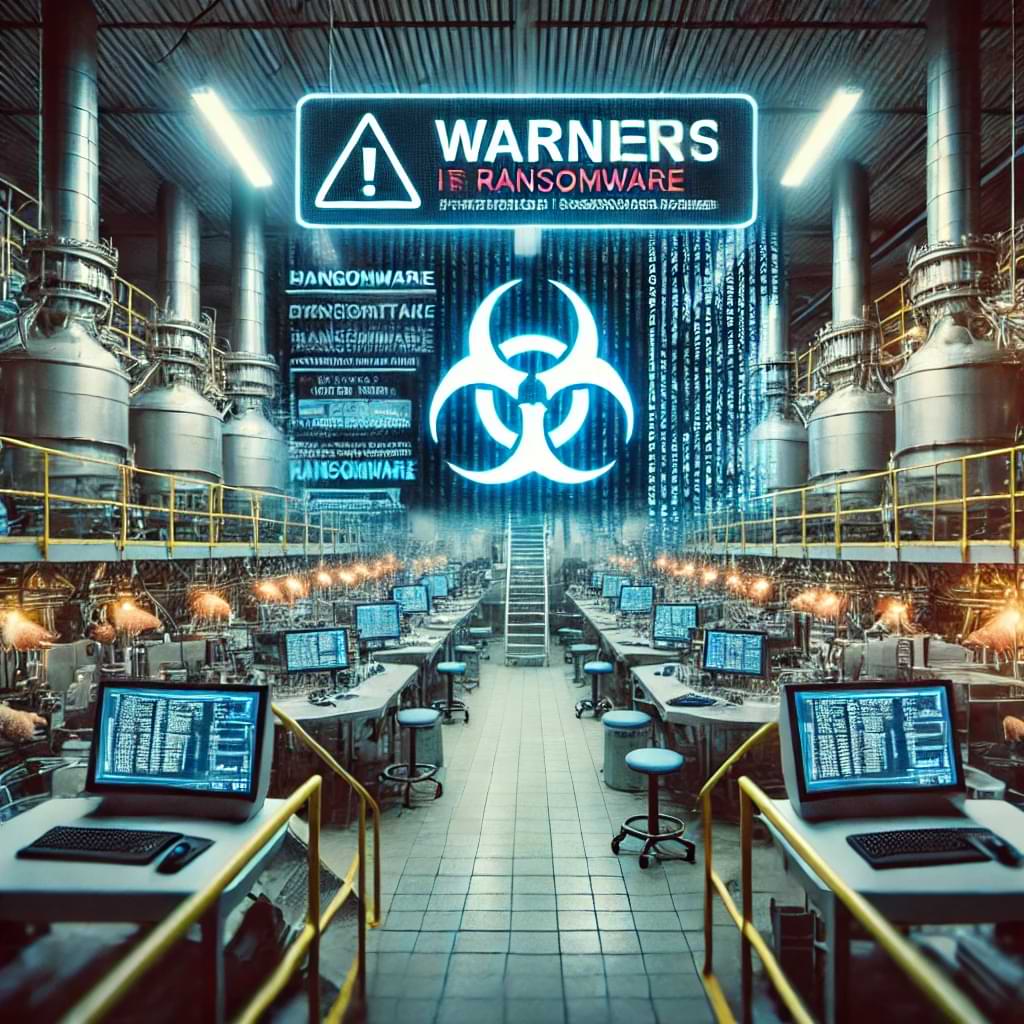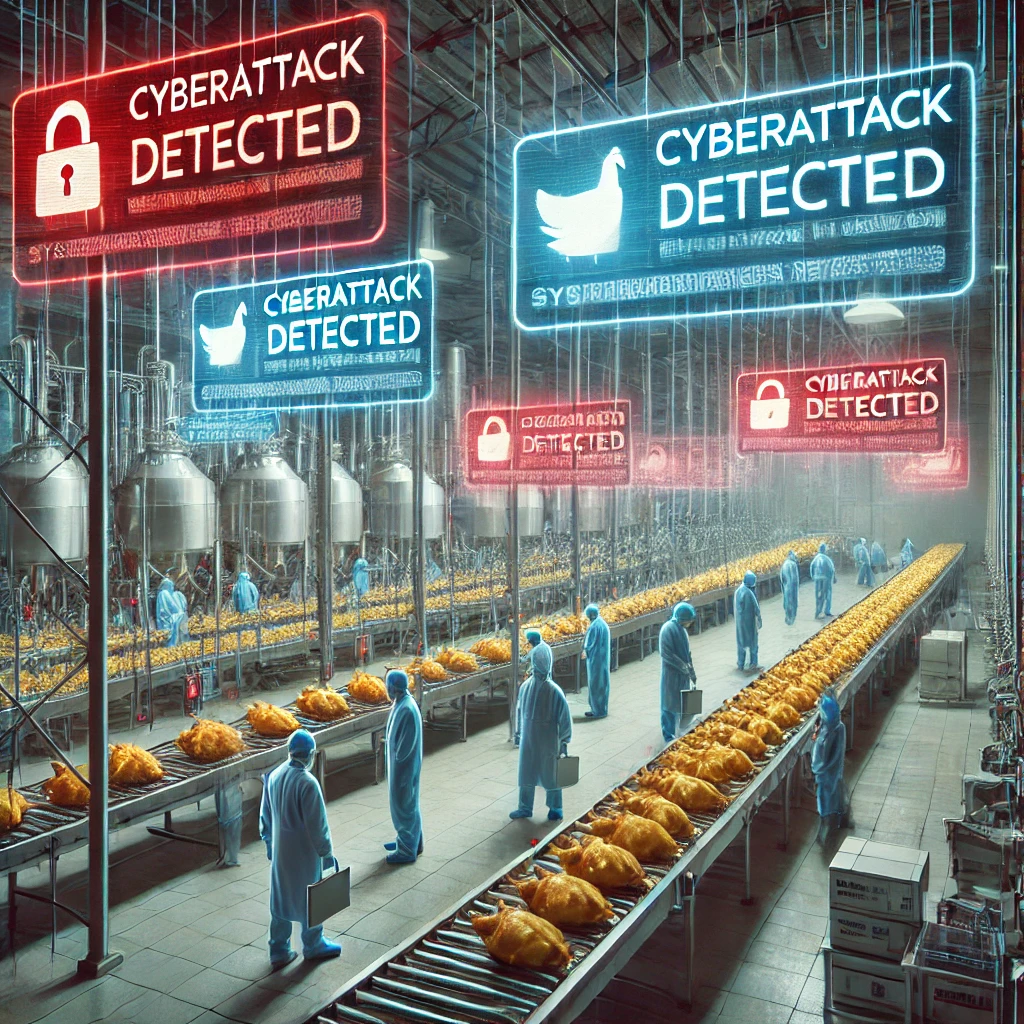Cybersecurity threats continue to challenge industries worldwide, with recent attacks impacting critical sectors. Two significant cyber incidents have made headlines: a cyberattack on South Africa’s largest poultry producer and the downfall of genetic testing company 23andMe following a devastating data breach. These cases highlight the urgent need for robust cybersecurity strategies across industries.
South African Poultry Producer Cyberattack
The Attack and Its Impact
South Africa’s largest poultry producer recently fell victim to a cyberattack that disrupted operations, delaying supply chains and raising concerns about vulnerabilities in food production. The attack targeted key systems, causing slowdowns in processing, distribution, and supply chain management.
While the exact nature of the attack remains undisclosed, cybercriminals often exploit outdated security infrastructure, weak passwords, or phishing scams to gain unauthorized access. The food industry, heavily reliant on digital systems for logistics, inventory tracking, and processing, has become an attractive target for attackers aiming to disrupt essential services.
The Growing Threat to the Food Industry
The food production industry is an increasingly attractive target for cybercriminals due to its reliance on technology and interconnected supply chains. A successful attack can cause severe economic consequences, impact food availability, and expose sensitive business data. In this case, South Africa’s poultry producer faced shipment delays, production bottlenecks, and financial setbacks.

Similar attacks in the past, such as the JBS USA ransomware attack in 2021, demonstrated how vulnerable the food industry is. Cybercriminals demand ransoms, disrupt supply chains, or steal proprietary data, making robust security measures essential for food producers worldwide.
Mitigating Risks in the Food Sector
To prevent similar incidents, food industry leaders must adopt proactive cybersecurity measures. Recommended strategies include:
- Strengthening Network Security: Implementing multi-layered security protocols to prevent unauthorized access.
- Regular Security Audits: Conducting frequent assessments to identify and address vulnerabilities.
- Employee Training: Educating staff on phishing attempts and cybersecurity best practices.
- Backup Systems: Maintaining secure offline backups to ensure quick recovery after an attack.
- Cyber Incident Response Plans: Having a clear action plan to mitigate damage if a cyberattack occurs.
As cyber threats evolve, food producers must prioritize cybersecurity to safeguard production and maintain trust in their supply chains.
23andMe Data Breach and Bankruptcy Filing
The Breach That Shattered Trust
Genetic testing company 23andMe, once a leading player in the personal genomics industry, recently suffered a major data breach in 2023. The breach exposed sensitive user data, including genetic information, names, and ancestry details. This incident severely damaged the company’s reputation and customer trust.

Hackers reportedly exploited weak security measures to access user accounts. Credential-stuffing attacks, where cybercriminals use leaked passwords from other breaches to access accounts, were likely used to gain entry. This breach underscored the risks of storing and sharing highly sensitive genetic data online.
The Aftermath: Financial Struggles and Bankruptcy
The breach not only caused a public relations crisis but also led to declining consumer trust and financial struggles. Demand for genetic testing had already slowed, and the data breach further worsened the company’s situation. With mounting financial losses, legal liabilities, and reputational damage, 23andMe ultimately filed for bankruptcy.
This case highlights how a cybersecurity failure can lead to devastating consequences for a company, from financial ruin to loss of customer trust. Organizations handling sensitive data must invest in top-tier security measures to prevent similar downfalls.
Lessons from the 23andMe Breach
To avoid similar cybersecurity disasters, companies handling personal data should:
- Implement Stronger Authentication: Enforcing multi-factor authentication (MFA) to prevent unauthorized access.
- Encrypt Sensitive Data: Ensuring genetic and personal data remain secure even in case of a breach.
- Monitor for Credential Leaks: Proactively scanning for compromised credentials to prevent credential-stuffing attacks.
- Educate Users: Encouraging users to use unique passwords and enable MFA.
- Regular Security Testing: Conducting penetration testing and security audits to identify and fix vulnerabilities.
Genetic testing companies handle some of the most sensitive personal data, making cybersecurity a top priority. The downfall of 23andMe serves as a cautionary tale for businesses across all industries.
Final Thoughts: Strengthening Cyber Resilience Across Industries
These recent cyber incidents highlight the growing risks in today’s digital landscape. The attack on South Africa’s poultry producer and the downfall of 23andMe demonstrate the far-reaching consequences of cybersecurity failures. Businesses must recognize that cyber threats are not limited to the tech sector—industries such as food production, healthcare, and financial services are all at risk.

As cybercriminals become more sophisticated, organizations must proactively strengthen their security frameworks. Investing in cybersecurity is no longer optional—it is a necessity to safeguard operations, customer trust, and financial stability.
By learning from these incidents and implementing strong security measures, businesses can better protect themselves from evolving cyber threats in the future.






No responses yet